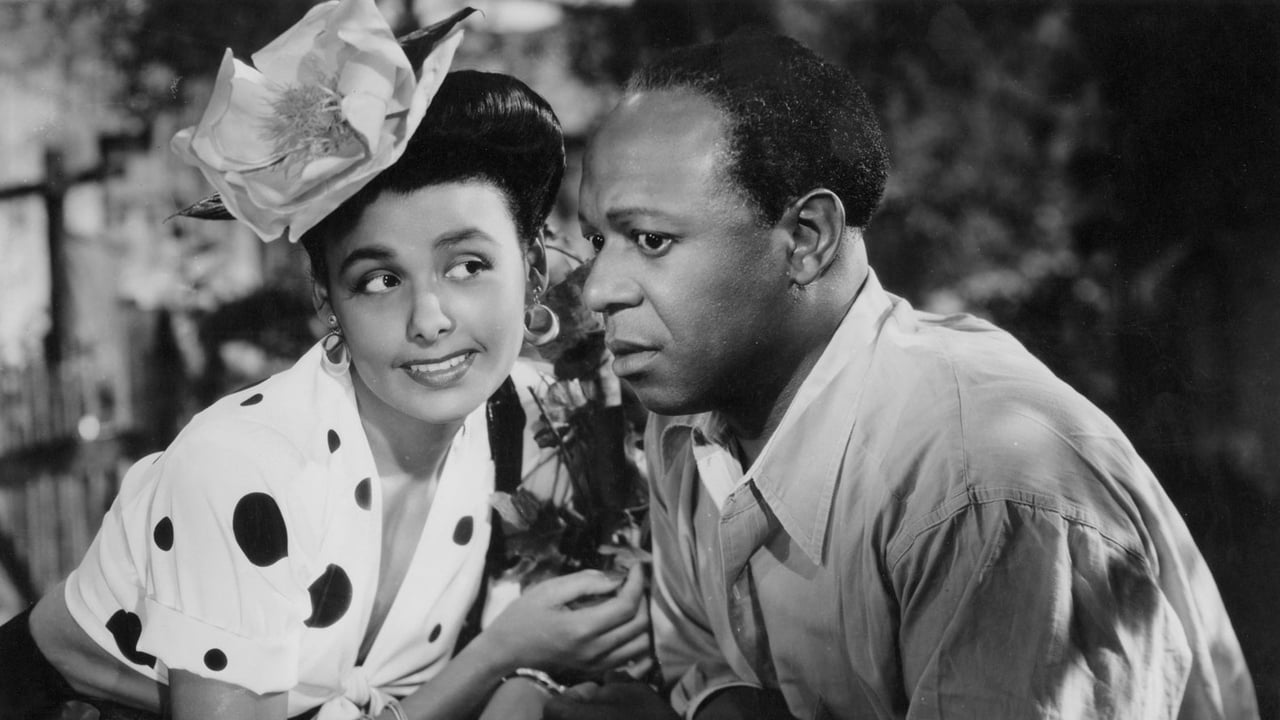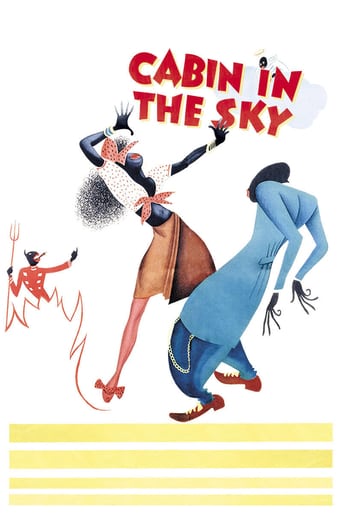

This unique, Musical fantasy was the first film directed by Vincente Minnelli. It stars Eddie 'Rochester' Anderson as Joseph 'Little Joe' Jackson, a man with a gambling problem whose wife Petunia, played by Ethel Waters, is so strong in her faith that her prayers enable her husband to receive a second chance. Little Joe's dealing with nefarious characters like Domino Johnson (John William Sublett) gets him shot, which leads to a scene in which the Devil's son Lucifer Jr. (Rex Ingram) is ready to take his soul to Hell before the Lord's General (Kenneth Spencer) intervenes and gives the gambler 6 months to reform. Ingram and Spencer also play characters in Little Joe's "real" life, a fellow gambler and Petunia's Reverend Greene, respectively. Ernest Whitman appears as one of Little Joe's creditors, and a club owner.Petunia represents one of Waters' few on-screen roles; she would go on to earn a Supporting Actress Oscar nomination for her role in Pinky (1949). She sings the film's Academy Award nominated Song - "Happiness Is a Thing Called Joe". On the other, Anderson, whose gravelly voice is as recognizable as Eugene Palette's, had already appeared in more than 50 films at this point in his career which spanned nearly 70 roles, most of which were stereotypical for Black actors of his era. Lena Horne, whose character also sings, plays the femme fatale, Georgia Brown, who Lucifer Jr. uses to tempt Little Joe during his reprieve. Louis Armstrong plays (his trumpet and) a minor role as one of Lucifer Jr.'s idea men, as does Mantan Moreland and shaky voiced Willie Best. Butterfly McQueen plays one of Petunia's friends and Duke Ellington appears (with his band) as himself; Cab Calloway also appears.
... View MoreEven though this movie was done in the 40's I found it to be really bad. Although I enjoyed the singing, dancing, and parts of the acting it was still a cheesy and somewhat offensive movie. It is so far off from the actual gospel, and it seems to make a joke out of everything to do with spirituality. If You are going to make a Christian movie that is supposed to teach a lesson, at least make it serious, and don't act idiotic miss information to it. The scenery and the graphics were awful, but this was the 40's so I won't really speak about that. Other than these issues a major problem I had was the poorly thought out scripting. The story could have been much better, and a lot more complex, they could have fixed this even with the low budget the producers probably had. The talented cast was wasted, and by the end of the film I wished I had never turned it on in the first place. It may be a "classic" to some people but I fail to see why, You may enjoy it if You like old musicals with a bunch of foolishness in it, but this is not my taste.
... View MoreAbsolutely, a superb motion picture of 1943. Ethel Waters is an absolute standout as the devoted wife, a Lord fearing woman who will go to any extreme to save her husband, Eddie Rochester Anderson, a compulsive gambler winding up dead and given a second chance to redeem himself.Waters throws herself into the part of Petunia, his loving, faithful wife. Her rendition of Happiness is Just A Thing Called Joe was forever endearing. Remember the way Susan Hayward sang that song in 1955's "I'll Cry Tomorrow?" I now realize that Hayward was emulating Ms. Waters when she belted out that song in that magnificent film.This was certainly a great opportunity for Anderson, the sidekick of Jack Benny on radio and television for so many years and he makes the most out of it.The way the dream sequence was done was phenomenal and with an outstanding supporting cast, this picture was just marvelous. Lena Horne, as the devil's worker, was also fantastic.
... View MoreThis is the sort of film that you'd certainly NOT see being made today and I am sure that "Cabin in the Sky" might make a few out there cringe--with its rather stereotypical characters--including several quite shiftless folks. However, if you can hold on to the politically correct voice welling up inside and just accept the film for what it is, then it's well worth seeing.This is a highly unusual film for its time. Despite the leading character being a dice-shooting no account, the fact that White Hollywood would produce a film with an all-Black cast is amazing--even if the characters are all either non-threatening "good Negroes" and the rest are "shiftless"--a rather two-dimensional view (at best). Still, if this film hadn't been made, performances by such greats as Ethel Waters, Lena Horne and Louis Armstrong never would have been seen and appreciated by a wider audience. Sadly, when you watch and see Kenneth Spencer in the film, you think of what a loss it was that Hollywood never gave him much of a chance and that he died so young--he had an absolutely beautiful voice.The film's plot is highly unusual. It's a religious allegory about the soul of one particular shiftless fool (Eddie "Rochester" Anderson). Anderson is given one last chance by God and the angels try to steer him towards good while the devils try to lead him down the path of destruction. And even more unusual is that the film is a singing and dancing musical. Some of the more hilarious performances are by Lucifer, Jr.'s imps. Sure, they are walking stereotypes, but seeing Louis Armstrong, Mantan Moreland and Willie Best acting is very entertaining--the dialog is very funny and original.Overall, the film is very entertaining and a wonderful showcase for some of the best Black entertainers of the day. Well made and certainly not a movie you'll soon forget.
... View More